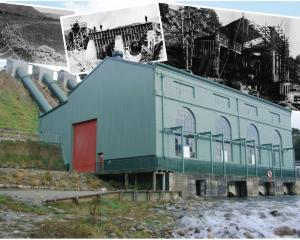
As battles go, Mormal Forest was more a scuffle than a set-to.
Its 11 deaths were a small toll compared with some of the atrocious days the Otago Regiment endured in World War 1.
However, unbeknown to the participants, the assault on the morning of November 5, 1918, was to be the last action by the Otagos in the war.
Fittingly perhaps, the dawn attack was accompanied by that Western Front staple - miserable, driving rain.
Soldiers moved up towards the front lines throughout the early hours of the morning, before the attack began at 5.30am.
That day their mission had three objectives, and was intended to have them advance just over four miles.
Such achievements would have seemed wildly optimistic in 1916 or 1917, when many an attack foundered without even a single yard being gained.
However, by 1918 the war had become a much more mobile one: the German March offensive advanced around 40 miles in three weeks, and in response the Allies August offensive regained most of that ground - and more in some places.
In a sad irony, that only made the war more deadly, as soldiers who quit the misery of the trenches also found themselves shorn of their protective value and were more easily hit targets.
The Otagos had been in the thick of the action throughout 1918, and the soldiers must have felt a similar anticipation to those at home that the end of the war was near.
Certainly, the early stages of the Mormal Forest engagement had that feel about them as the Otagos, supported by the 2nd Canterbury Battalion, marched forward without opposition.
However, at a spot called the Forester's House, the Otagos found Germans in position with reserves in behind on the high ground.
An initial attack failed, but the house fell at the second attempt, and two machine guns and 30 prisoners were taken.
The regiment's 2nd Battalion then set up its headquarters there - but with almost fatal consequences for its commander, Lieutenant-colonel James Hargest.
A Gore farmer and Territorial Force soldier, Hargest enlisted in 1914 and went to Gallipoli as a second lieutenant in the Otago Mounted Rifles.
Seriously wounded in August 1915, he returned to active service in 1916 and took part in the Battle of the Somme, where he was awarded the Military Cross and promoted to major.
In 1917, Hargest was appointed second in command of the battalion, and assumed full command as a lieutenant-colonel in September 1918.
The two remaining months of the war offered Hargest plenty of time to prove his mettle. By war's end he was awarded the Distinguished Service Order, the French Legion of Honour, and was mentioned in despatches.
However, his future career as an civic leader, MP and World War 2 commander almost ended at Mormal.
Forester's House came under artillery fire which left Hargest, who had been standing in the entrance way, momentarily stunned.
Fortunately, he recovered quickly enough to seek cover - a shell then landed just where he had been standing and destroyed the front of the building.
After regathering themselves, the Otagos pushed on. They captured their second objective soon after, and at 1.30pm had secured their final objective.
While they might have felt they could walk all the way to Germany at that point, by 3pm they were ordered to halt and form a defensive line - 7500 yards ahead of where they had started that morning.
Reserves arrived in the hours afterwards, and the Otago soldiers then marched the nine miles to Le Quesnoy - liberated by their fellow New Zealanders the previous day.
Two officers and nine other soldiers were killed at Mormal. The official regiment history notes that they were among the last New Zealanders killed in the war, and that they were "reverently laid to rest" on November 6.
On Armistice Day - November 11 - the Otago Regiment was at Le Quesnoy.
They greeted the end of hostilities with relief, not joy, the official history said.
"In strange contrast to the extraordinary demonstrations in other parts of the world, there was barely a shout from the billets, except perhaps as a protest against so much noise; and the weary soldier, with a sigh of relief as after a task well done, turned over and went to sleep again."
Advertisement













